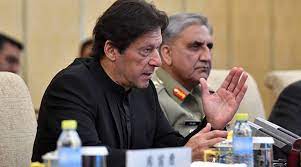Democratic deficit: On the attempt on Imran Khan’s life
Early election is the only prudent way forward for Pakistan
The habitual turbulence of Pakistani politics took a decidedly dangerous turn last week, with an assassination attempt on its former Prime Minister Imran Khan, who was ousted seven months ago. Mr. Khan escaped with leg injuries after a gunman opened fire. In a press conference a day later, Mr. Khan blamed the government and the military for plotting to kill him. Mr. Khan, who had earlier invoked comparisons between himself and former PM Zulfikar Ali Bhutto, hanged in 1979 — of a popular leader whose mandate is being thwarted by the establishment — even brought in the example of Sheikh Mujibur Rahman, the founder of Bangladesh. Both PM Sharif and the Army have denied Mr. Khan’s allegations but it is harder to deny the growing problem that he now poses. Since April, when he was forced to step down following a confidence vote in parliament, and losing all court appeals, he has taken to the streets, demanding a general election immediately. He has grown vocal about the political role of the military, accusing “ Dirty Harrys” of imprisoning and torturing his supporters in the Pakistan Tehreek e Insaf (PTI) Party, and mocking Army Chief General Bajwa, whose tenure ends this month, for suggesting that the military would maintain a “ neutral ” role. There have been repercussions. In September, he was indicted in a contempt of court case for impugning the High Court judiciary, and although terror charges were dropped against him, he faces criminal charges for threatening to sue government officials. In October, the Election Commission held him guilty in a case involving undeclared official gifts and disqualified him from holding public office; he could face a legal challenge to his seat in Parliament for defaming the judiciary and armed forces.
For the Sharif government that is already beleaguered by the devastating floods, a security crisis emanating from Afghanistan, the burgeoning economic crisis, and continued bad relations with India which has stopped much-needed trade revenues, Mr. Khan’s challenge could not have come at a worse time. Mr. Sharif, who has been making many foreign visits, must focus on the domestic situation, and investigate the attack on Mr. Khan in a convincing way if he intends to shore up his credibility. Despite the many setbacks, Mr. Khan’s popularity remains strong; he won six out of eight by-elections last month. In the aftermath of the assassination attempt, PTI protesters have held marches in Rawalpindi, Peshawar, Quetta, and Karachi. The biggest worry for the government is maintaining law and order if the impasse continues. In that case, elections at an early date may prove the only prudent way to move forward, in a country that has always suffered from a deficit in democracy.
